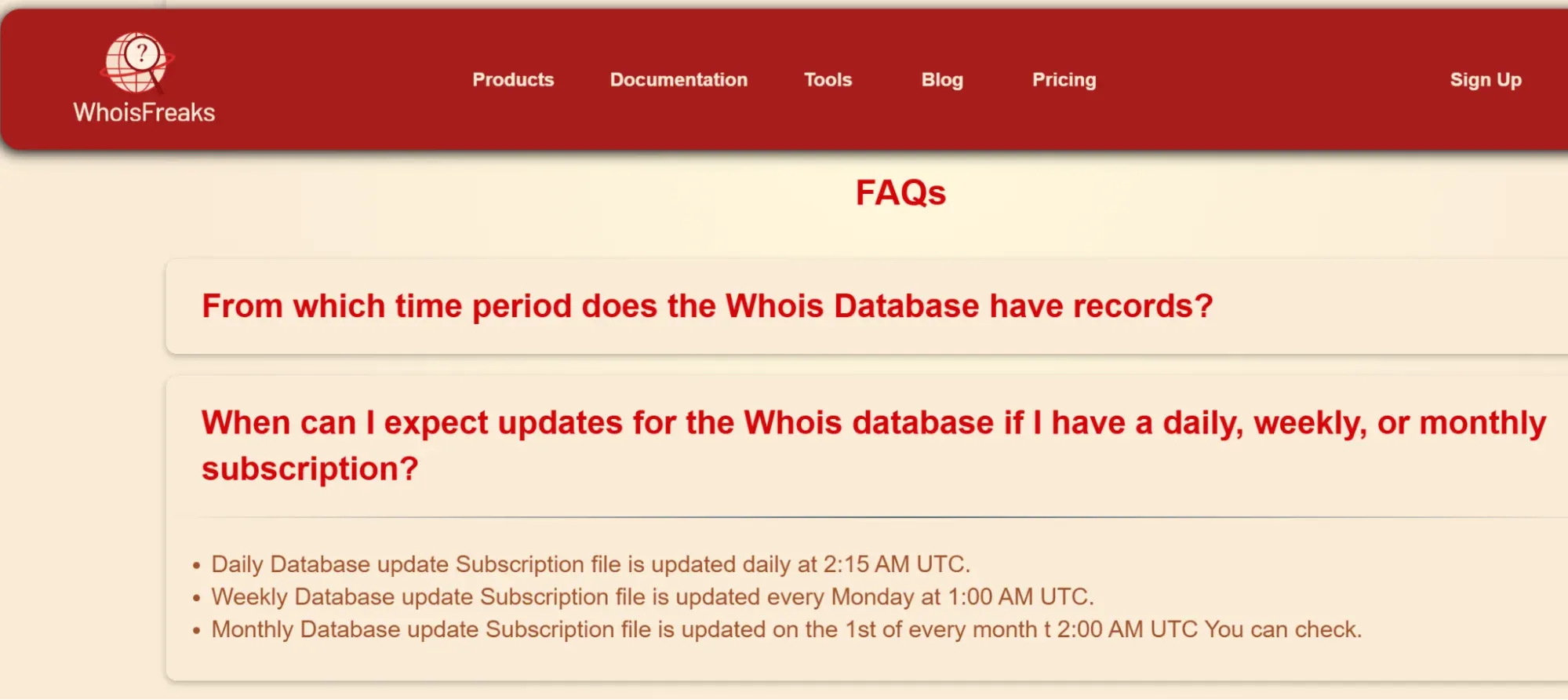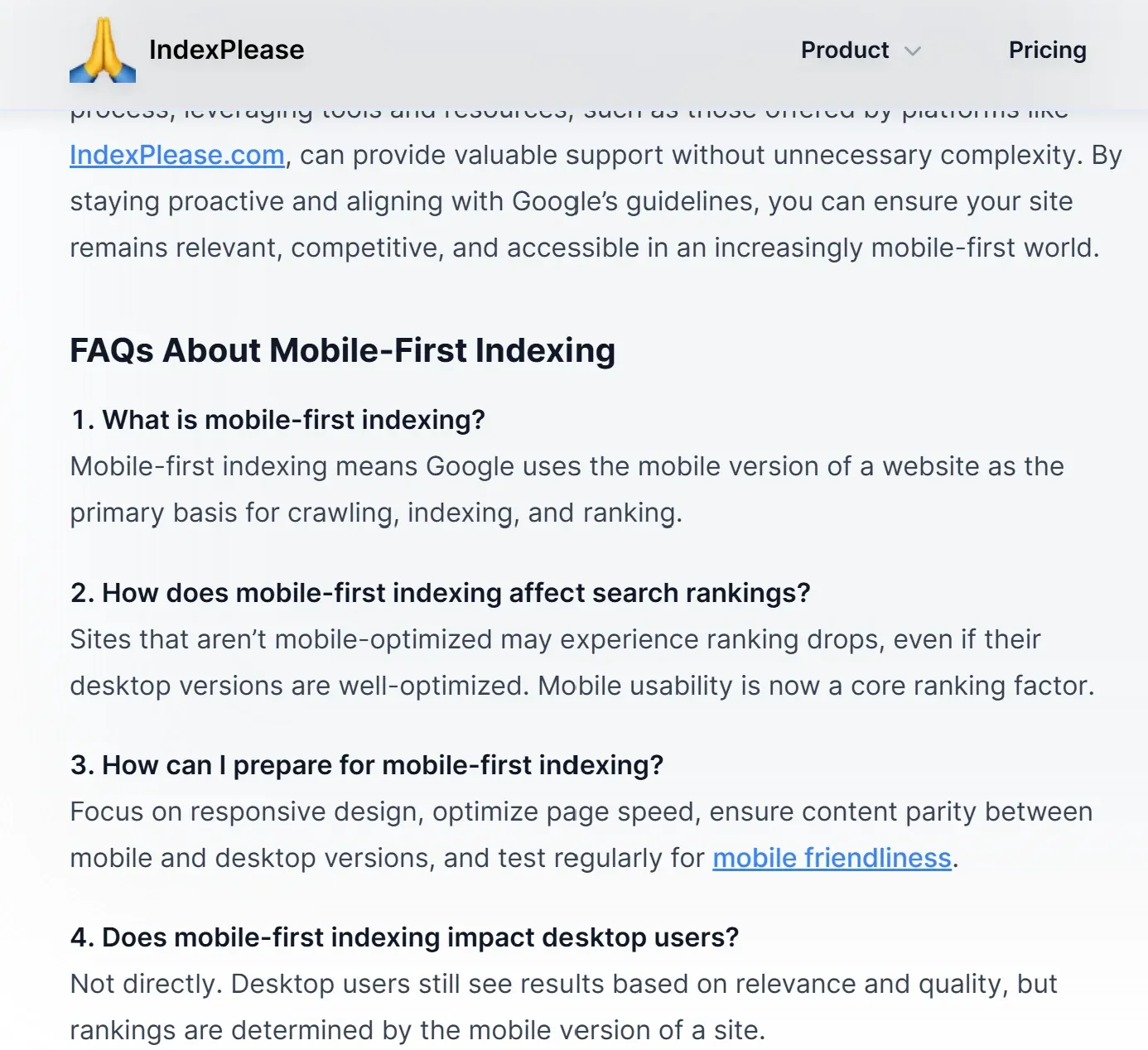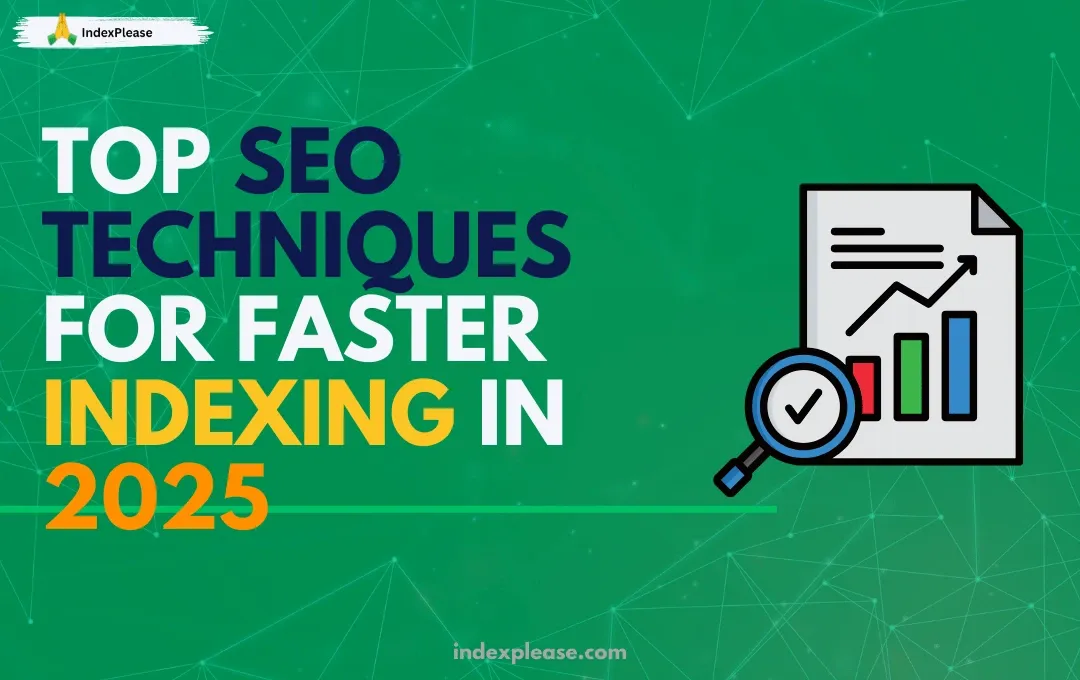
Top SEO Techniques for Faster Indexing
Developing a website and its content is quite challenging. But even after all the hard work, if search engines cannot recognize your content, you are in a fix. Working in a bubble is of no use. Remember, digital marketing practices have transformed, and market practices are changing quickly. Faster indexing and higher rankings in Search Engine Results Pages (SERP) are critical for websites. Especially for increasing online exposure and user engagement. Therefore, you need to be aware of the latest updates and most recent SEO techniques for faster indexing. It would ultimately bring in more traffic, high ranking, and visibility.
This article will discuss the best SEO tactics for faster indexing in 2025. Keep reading to get more information.
1. Optimizing Content for Quick Indexing
First step towards fast indexing is optimizing our content. We know that preparing content requires lot of effort and research work. But our job is not over by just creating the content. We need to optimize it also intelligently. Optimizing content means creating high-quality and well-structured content. Moreover, we need to ensure that our website is crawlable so that search engines can handle simply. It can be achieved by focusing on the following points:
(i) Craft Engaging, Shareable Headlines
Catchy, keyword-rich headlines can grab attention and improve your content’s visibility. There are many tools available which may help you in creating compelling titles. A great headline will immediately entice users to Click and Engage resulting in relevance signals to search engines.
Creative headlines of three blogs of www.whoisfreaks.com for faster indexing”
(ii) Add Multimedia Elements to Content
Search engines like visually richer material because it provides greater value to users. Visual material includes graphics such as photographs, movies, charts, and interactive components in your content. Multimedia helps in
Improving the user experience
Extending time on the website
Promotes sharing
Videos hosted on networks like YouTube and placed on your website can increase traffic and indexing speed.
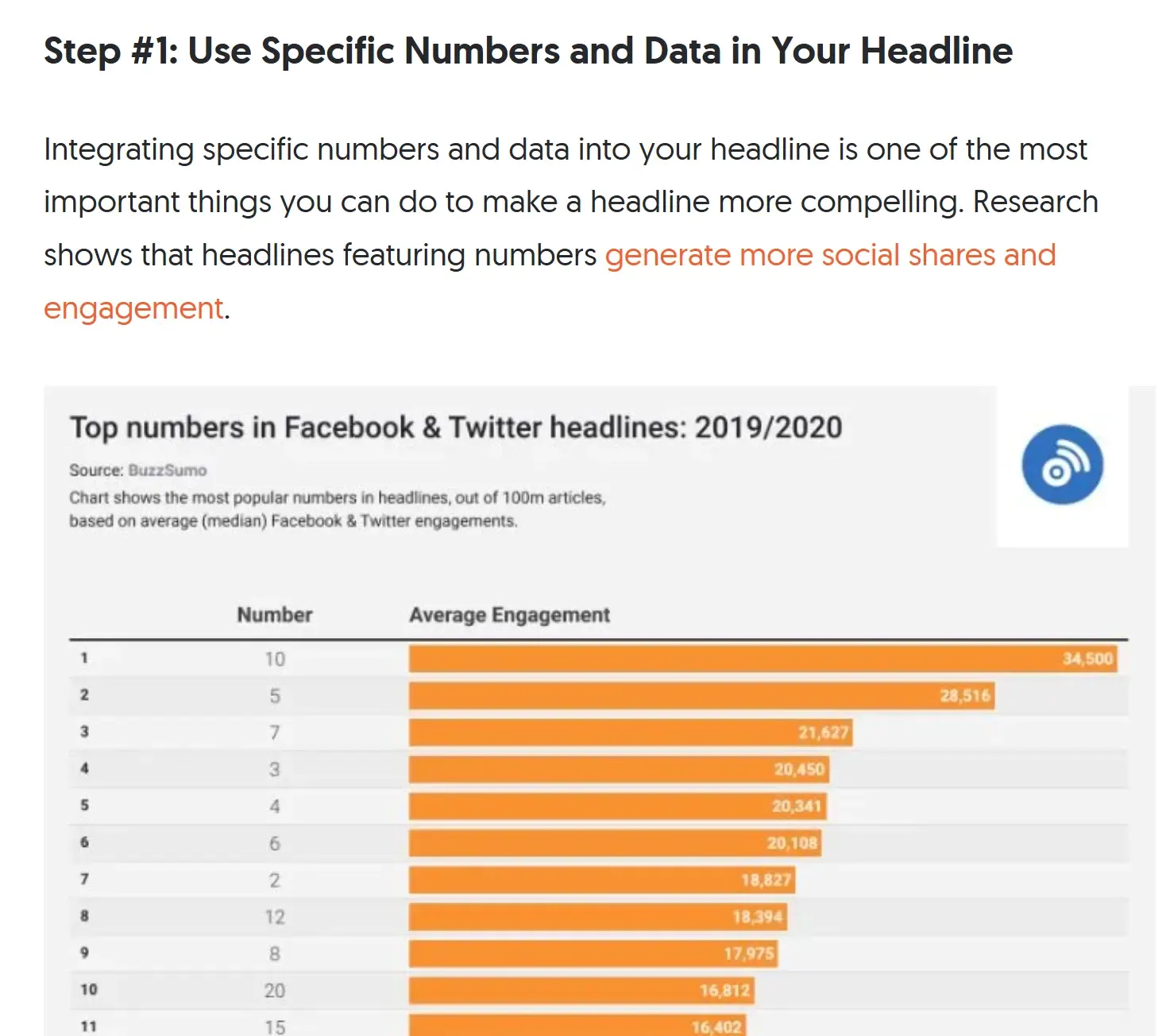
(iii) Optimize for Featured Snippets
Optimize your content for featured snippets by clearly answering popular user inquiries. Structured formatting techniques best for snippets are like
Bullet points,
Number lists,
Short responses
Featured snippets are shown at the top of search results and provide visibility. If your content is ranked as a snippet, surely it will be crawled and indexed.
(iv) Focus on E-A-T (Expertise, Authority, Trustworthiness)
Your website’s content must demonstrate expertise, authority, and trustworthiness. Cite trustworthy sources, add author biographies, and give verified information. Since Google likes trustworthy content, focus more on well-researched articles. It would boost faster crawling and indexing prospects. Including testimonials, case studies, or expert views increases the credibility of your content.
(v) Select the URL intelligently
URL helps the search engines to understand the website structure and its content relevance. Therefore, keep your URLs
Brief
Descriptive
Keyword-rich
so that they are easily indexed. URLs like
https://indexplease.com/blog/how-to-create-a-robots-txt-file
https://whoisfreaks.com/resources/blog/top-cyber-threats
https://whoisfreaks.com/resources/blog/ip-intelligence-threat-detection
are good examples of intelligent URLs.

(vi) Answer FAQs with a Dedicated Section
Add a Frequently Asked Questions (FAQs) section within your article. These sections respond quickly to user inquiries and increase your chances of ranking for voice searches. Use FAQ format to improve your visibility in search results. FAQs are highly engaging, and their organized format allows search engines to index the content faster.
2. Using Keywords Effectively for Faster Indexing
Using keywords effectively is critical for faster indexing in SEO. Conduct extensive keyword research. It will help you find primary and secondary keywords relevant to your article. Use these keywords intelligently in your
- Title tags
- Meta descriptions
- Headers
- inside the first 100 words of your article.
You must place your keywords early to introduce your page to search engines. This strategy will also help you in indexing the page quickly.
In addition, employ long-tail keywords to target specific audiences and boost relevancy. Avoid keyword stuffing. As it might result in penalties to your website. Instead, focus on creating genuine, compelling content that contains keywords. Optimizing photos with keyword-rich alt text and ensuring clean URL structures also helps in crawling and indexing. Consistent keyword optimization can dramatically increase indexing speed.
3. The Role of Fresh Content in Fast SEO Indexing
Search engines like websites that update their content regularly. Therefore, fresh content would always be of key importance for rapid SEO indexing. How do search engines get the signal of fresh content? These are generated by
- Publishing new articles
- Blog posts
- industry update
By introducing above in the website we give up-to date and relevant signals to search engines. Search engines like (Google, Bing, Yahoo, Baidu etc) love to crawl and index new information-rich websites. Below are few tips which may help you in developing fresh content:
(i) Update Old Content Regularly
Convert existing, high-performing material into new formats like videos, infographics, and podcasts. This keeps your website dynamic and broadens its reach across platforms. For instance, turn a blog post into a YouTube video or an infographic for Pinterest. Transformed material can generate backlinks and social shares, prompting search engines to index the revised content faster.
(ii) Create Evergreen Content
Evergreen content remains relevant and attracts traffic long after the article is published. Examples include how-to guides, industry glossaries, and beginner’s tutorials. Search engines regularly index evergreen pages because they provide value to users. Update these content pages regularly to guarantee they remain accurate and rank well.

3. How Backlinks Contribute to Faster Indexing
High-quality backlinks from credible websites express authority and trust to search engines, hence resulting in faster indexing. When high-quality websites link to your pages, search engines interpret these backlinks as a vote of confidence. Encouraging them to crawl and index. Create solid backlink profiles by ensuring
- Valuable, shareable material that naturally generates links.
- Guest blogging, broken link building, and partnerships with niche influencers
- Backlinks are from relevant, high domain authority sites.
These all will maximize the influence of your links on SEO and indexing speed.
The more hyperlinks you have from credible sites, the more often search engine bots visit your site. Furthermore, internal backlinks can deliver link equity around your site. Thus allowing new pages to be indexed more quickly
4. Technical SEO of the website
(i) Increase Your Website’s Speed
Have an eye on your website’s speed. It also plays a crucial role in faster indexing along with better user experience. You may boost your pages load times by
Using compressed images
Enabling browser caching
Reducing CSS and JavaScript files.
Use a Content Delivery Network (CDN) to serve content more efficiently. Search engines always prefer crawling fast-loading websites. It also subsequently leads to faster indexing and higher overall search result rankings.
(ii) Submit Your Sitemap to Google Search Console
A sitemap is a roadmap that guides search engine crawlers to your website’s primary pages. Uploading it to the Search Console helps Google to discover and understand the content more efficiently. Regularly update your sitemap for the best results.
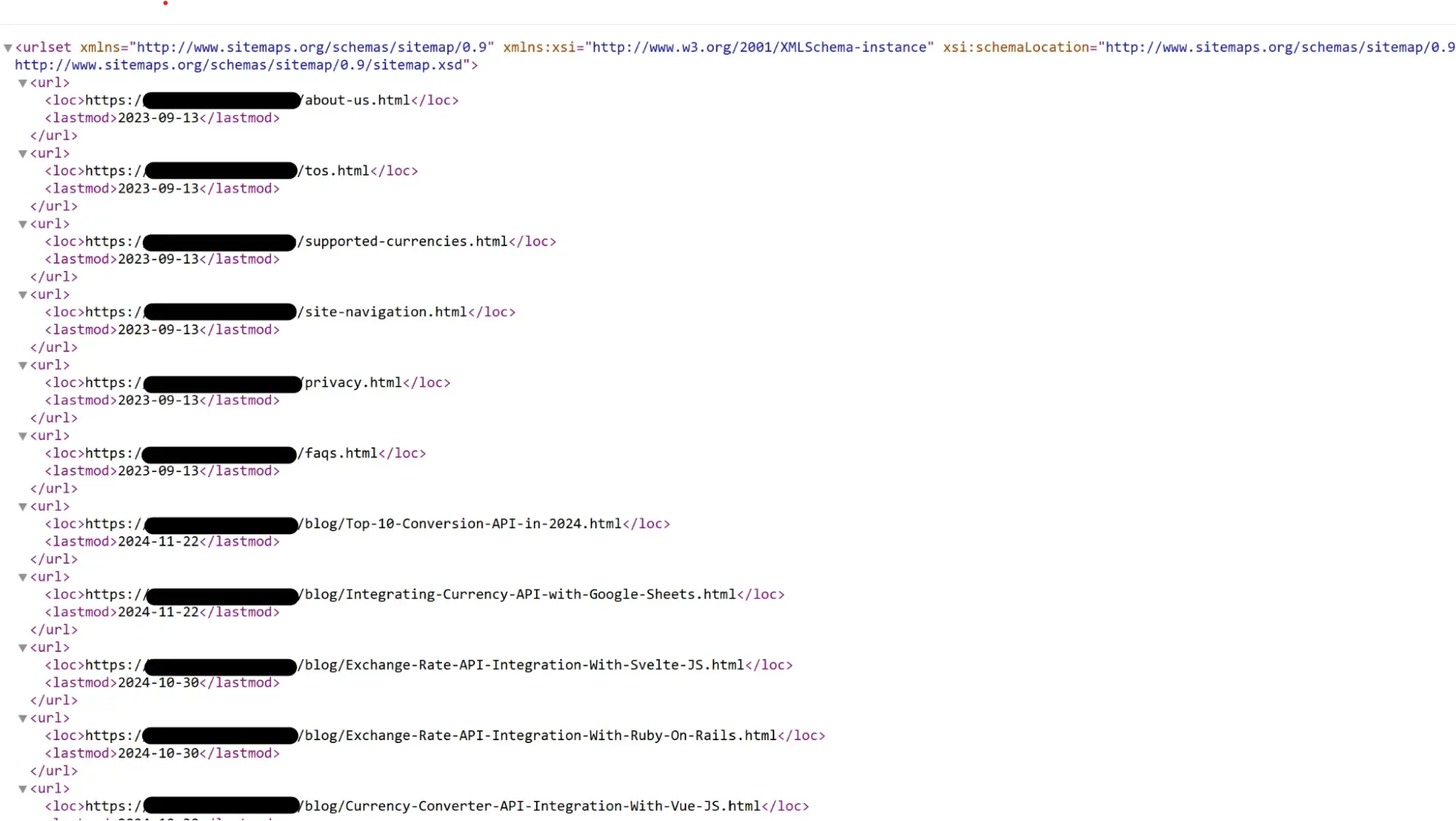
Google search console takes time to index websites with large number of pages. Infact the crawling budget assigned to any website is at times very low as compared to volume of website. Hence indexing issue arises. Indexplease will make your life easier. Just follow the guidelines to get the pages indexed on google and then sit and relax. No matter what the website volume is Indexplease will handle the indexing issues.
5. FAQs
1. What is faster indexing in SEO, and why is it important?
Faster indexing refers to a process. Through this process search engines quickly discover and catalog website content. It may be newly published or updated. It is important for
- Improving visibility
- Driving traffic
- Ranking higher in search engine results.
2. How to optimize content for faster indexing?
You can optimize content by:
- Crafting engaging headlines.
- Adding multimedia elements like images and videos.
- Structuring content for featured snippets.
- Focusing on E-A-T (Expertise, Authority, Trustworthiness).
- Using descriptive, keyword-rich URLs.
3. Why are featured snippets important for indexing?
Featured snippets appear at the top of search results. Hence making your content more visible. It further provides better chances for faster crawling and indexing by search engines.
4. How do keywords affect SEO indexing speed?
Keywords signal search engines about the content’s topic and relevance. Intelligently placed keywords in titles, headers, meta descriptions, and URLs will ensure quicker recognition and indexing.
5. What do we mean by evergreen content, and what is its role in indexing?
Content that stays relevant over time and is a source of consistent traffic is called evergreen content. It has an important role in indexing because search engines prefer fresh and encouraged content.
6. How do backlinks improve indexing speed?
Backlink is a signal of trustworthiness from a website to a search engine. An authoritative site signal will prompt faster crawling and indexing. Internal backlinks also help spread link equity across your site.
7. Why is website speed crucial for faster indexing?
Fast-loading websites provide a better user experience and are prioritized by search engines for crawling and indexing. Optimizing image sizes, caching, and reducing file sizes can improve speed.
8. What role does a sitemap play in indexing?
A sitemap acts as a guide for search engines. It helps them to locate and index key pages of your website efficiently.
9. What is E-A-T in SEO, and how does it impact indexing?
E-A-T stands for Expertise, Authority, and Trustworthiness. Content that demonstrates these qualities is preferred by search engines and indexed more quickly due to its credibility.
10. How often should I update my content for SEO?
Regular updates to content, especially high-performing or evergreen pages, signal relevance to search engines and lead to more frequent indexing.
Final Thoughts
In conclusion, learning SEO techniques for faster indexing is critical. Without them, it would be not easy to achieve more visibility and engagement. Techniques like website optimization, smart content creation, effective keyword use, and strong backlinking can index your website quickly and consistently. Evergreen tip is remaining active and adjusting to the new changes will never let you down. Boosting website’s indexing speed and search engine ranking is like oxygen to a website. You cannot afford to miss the relevant SEO techniques.
 for faster indexing](/_astro/crafting-headlines.B95f2Fxj_1fbns4.webp)

